‘Bad relations’ with Australia have led to power shortages in China, leaving millions shivering in their homes
Power shortages across China are forcing tens of millions of people to ration heating, putting pressure on Beijing to end its ban on Australian coal.
National
Don't miss out on the headlines from National. Followed categories will be added to My News.
China could be forced to end its ban on Australian coal as tens of millions of people shiver in the northern winter as they’re forced to ration their heating.
Early this morning AEDT, it was minus four degrees celsius in Beijing and minus 32C in Inner Mongolia.
But China’s power stations are running out of coal to keep the nation heated.
Australia in 2019 supplied 57 per cent of China’s thermal coal imports for power stations and more than 40 per cent of the nation’s imports of coking coal, a key ingredient in steelmaking, according to coal researcher IEA Clean Coal Centre.
And many Chinese power plants have been designed specifically to use Australia’s high-quality black coal.
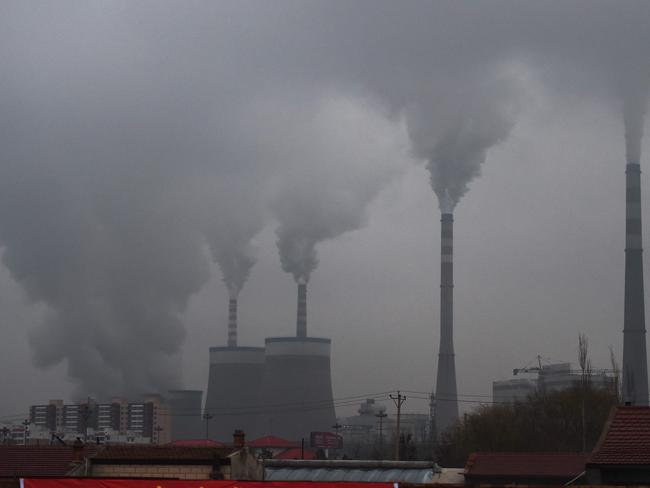
The Australian reported that the electricity shortages have been causing increasing concern in Beijing as a mixture of booming industrial activity, protection of its politically powerful domestic coal sector and retribution against the Morrison government begins to affect daily life.
“You cannot pretend that bad relations between China and Australia haven’t contributed to this situation,” a Chinese energy industry source told The Australian, asking not to be named because of political sensitivity.
Australia is seeking official “clarification” from the Chinese Government following reports Beijing had singled out coal exports in its escalating trade dispute Prime Minister Scott Morrison said.
Residents in the industrial hub of Zhejiang — an east coast province of 57 million people which the Chinese President once ruled — have been instructed not to use heating until the temperature falls below 3C.
Some people in Hunan — which has a population 67 million and was the birthplace of Mao Zedong — have been forced to climb 20 flights of stairs to get to their apartments as power cuts prevent the use of lifts.
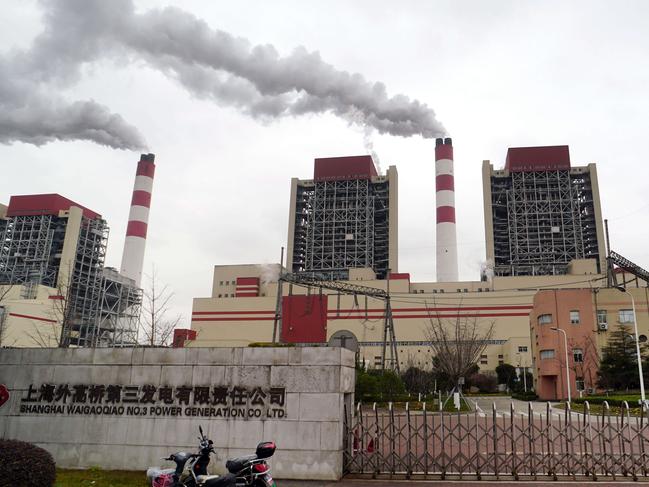
Restrictions on power usage have also spread to provinces including Shaanxi (population 33 million), Jiangxi (45 million) and Inner Mongolia (25 million), where temperatures this week have fallen below minus 40C.
Last week, Shanghai’s municipal government told shopping malls and office towers to switch off airconditioning and all unnecessary outdoor lighting. Shanghai’s signature light and laser show along both banks of the Huangpu River will reportedly soon be suspended indefinitely.
The National Development and Reform Commission met with major power companies to address rising domestic coal prices.
The commission gave the thumbs up for power plants to import coal without clearance restrictions, “except for Australia”, according to state media.
The all-but-official ban on Australia’s $14bn annual coal exports to China is the biggest strike in Beijing’s sweeping eight-month-long attempt to use more than $20bn of trade restrictions to punish the Morrison government for calling for an independent inquiry into the coronavirus.
China’s state-controlled media has been reluctant to link the spike in coal prices and power restrictions to Beijing’s ban on coal imports, particularly from Australia.
The country’s industrial analysts have been more direct in articles to clients spread over Chinese social media.
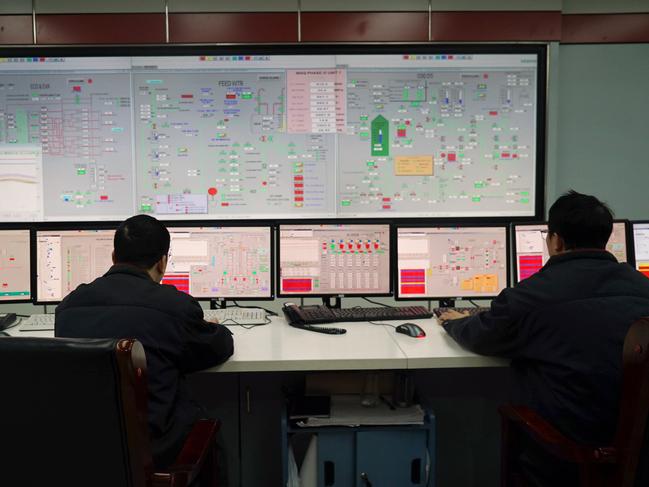
“Many coastal power plants have renovated power units to use Australian coal,” wrote one Chinese industrial analyst firm, which also noted the “big gap in terms of quality” between Australian coal and that from Indonesia and Russia.
Former Nationals leader and trade minister Mark Vaile said: “It’s going to be interesting to see how the Chinese government deals with this. Their concerns are always about maintaining civil stability.
“If it’s Chinese government decisions that are causing power outages through a lack of supply of quality coal, well, that certainly will raise concerns in the community.” Mr Vaile is now chairman of coal company Whitehaven, which does not export to China.
China this year imposed strict restrictions on imports to help struggling local coal producers by increasing domestic prices.
Prices have skyrocketed on booming industrial activity in China and as cold weather hit much of the country earlier than usual, increasing demand.
AUSSIE MEDIA BATTLING CHINA “THREAT” TO CENSOR CONTENT
China’s Communist Party (CCP) has made “persistent efforts” to interfere with Australia’s media, an Ausie think tank has claimed.
According to the Australian Strategic Policy Institute (ASPI), the CCP has aimed to influence and censor content.
In an analysis of 24 privately-owned Australian media organisations that produced news media in Chinese, the Australian Strategic Policy Institute (ASPI) found four had evidence of CCP ownership or financial support — including the Australia Pacific Media Group which has been previously criticised for being a propaganda arm for the CCP through its publication Pacific Time.
Other outlets, including the ABC, were found to be influenced by Party campaigns to restrict information that does not align with Beijing, through decisions about content posted on the social media platform WeChat.
“CCP-aligned media in Australia have been involved in a range of concerning activity, including suspected political interference,” it said.
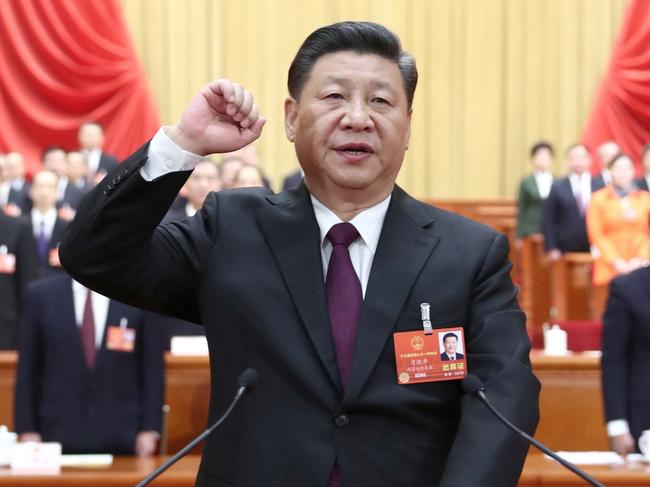
Nevertheless, ASPI said the ABC and SBS were among the most reliable sources of Chinese-language news media in Australia.
“A handful of outlets, such as the ABC and SBS, generally offer high-quality coverage of a range of issues”, it said, recommending that the Federal Government provide greater funding to the public broadcasters’ Chinese-language news services, the ABC reported.
According to Professor Wanning Sun of the Australia-China Relations Institute at the University of Technology Sydney, growth in the population of mainland Chinese people in Australia has meant that Chinese language media is “no longer dominated by media establishments catering to earlier Cantonese-speaking generations”.
“What has emerged instead is a vibrant media sector catering mainly to a Mandarin-speaking migrant community from the People’s Republic of China,” she wrote in 2016.
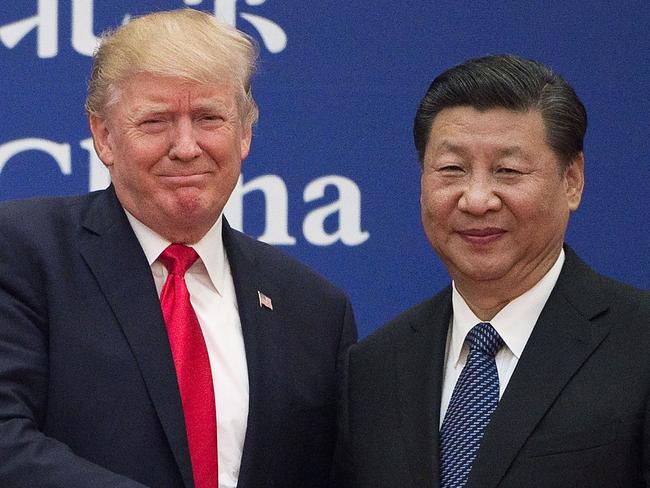
The current media landscape has also been shaped by the rise of social media.
Use of Chinese social media is nothing new for Australian politicians — Kevin Rudd has been on Weibo and WeChat for years — but engagement has become more frequent, the ABC says.
“Persistent efforts by the Chinese Communist Party to engage with and influence Chinese-language media in Australia far outmatch the Australian Government’s work in the same space,” the ASPI report’s author Alex Joske said.
WeChat has approximately 3 million users in Australia, and according to ASPI may be behind “the most substantial and harmful changes ever observed” in Australian Chinese-language media.
The social media giant, owned by parent company Tencent, heavily censors content mainly for users registered in China, while international accounts do not share the same restrictions.
Media organisations can set up “Official Accounts” internationally, which allow them to post content publicly to their followers.
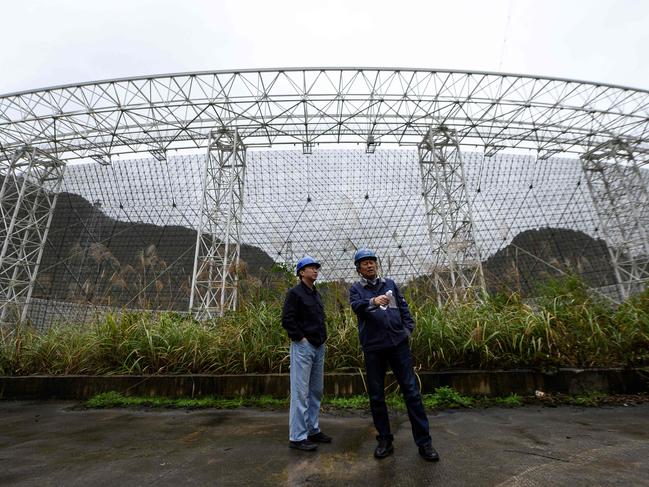
NEXT STEP IN CHINA DISPUTE COULD ‘TAKE YEARS'
Trade Minister Simon Birmingham says the World Trade Organisation will be engaged in a bid to settle an ongoing dispute with China over Australia’s barley exports.
Mr Birmingham conceded it could take “take years” to settle the dispute that pertains to China’s decision early this year to slap tariffs on Australian barley.
He said Australia had taken this step “following extensive consultation with Australian industry”.
“WTO dispute resolution processes are not perfect, and they take longer than would be ideal, but ultimately, it is the right avenue for Australia to take at this point in time,” Mr Birmingham said.
Asked about the WTO process, he said: “It could take years”.
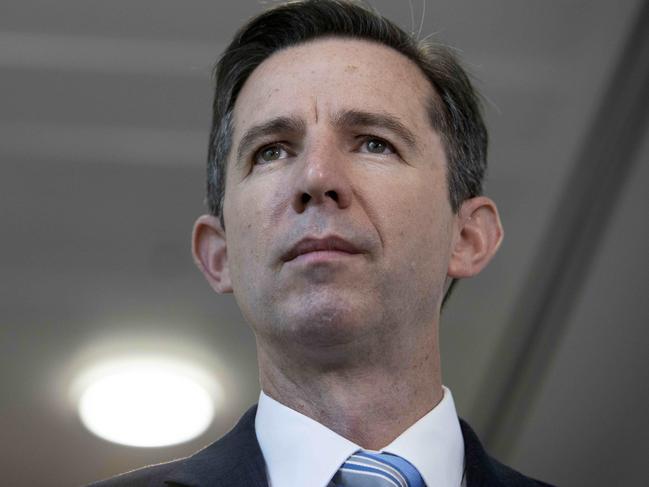
Mr Birmingham said he was “highly confident” that Australia had “and incredibly strong case to mount in relation to defending the integrity, and proprietary of our grain growers and barley producers.”
He added the government had “full confidence” grain growers were not “unduly subsidised” and did not dump their product in global markets.
China’s decision to penalise barley growers was not “underpinned by facts and evidence”, he said.
Mr Birmingham said he would consider engaging the WTO to help settle disputes over wine, coal, cotton and seafood if they could not be resolved within existing agreements between China and Australia.
Given the dispute resolution process could take some time, Mr Birmingham said in the meantime Australian barley producers would assess future output, and the federal government would work with them to “pursue avenues to sell into other markets”.
‘WE’LL NEVER ACCEPT IT’: CHINA LASHES AUSTRALIA
Deputy National Party leader David Littleproud says China must “clarify” or “rectify” reports it has banned Australian coal, as the Asian superpower claims it is unaware of the issue.
“The Chinese government needs to clarify this (or) rectify this very quickly,” Mr Littleproud told Sky news.
“The world is watching very closely on the actions of China,” he said.
“It is important the Chinese Government … clarify this very quickly because the world is getting anxious.”
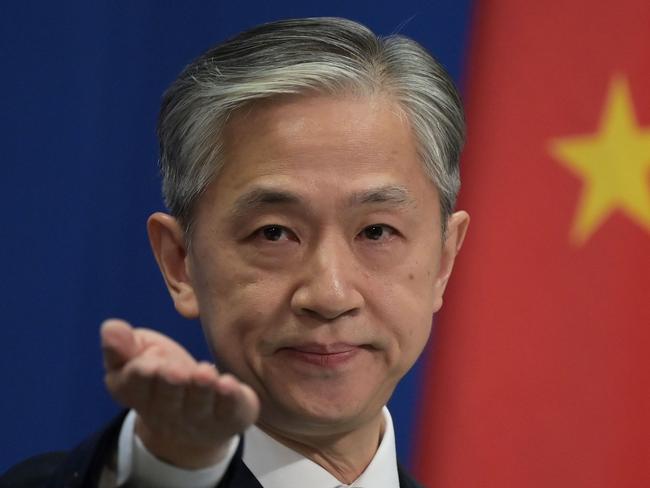
China’s Foreign Ministry spokesman Wang Wenbin earlier said he was “not aware” or the situation, and in the nation’s first comments on the ban, accused Australia of casting itself as a “victim, pointing an accusing finger at China”, according to The Australian.
“This move is meant to confound the public and we will never accept it,” Mr Wang said.
NZ’S STUNNING OFFER TO HEAL AUSSIE RIFT WITH CHINA
Australia’s close neighbour has offered to play the role of peacemaker in our ongoing row with China that has led to a crippling trade war.
New Zealand’s new foreign minister Nanaia Mahuta said the country could help negotiate a truce between Australia and Beijing with the two nations caught in an escalating trade and diplomatic row.
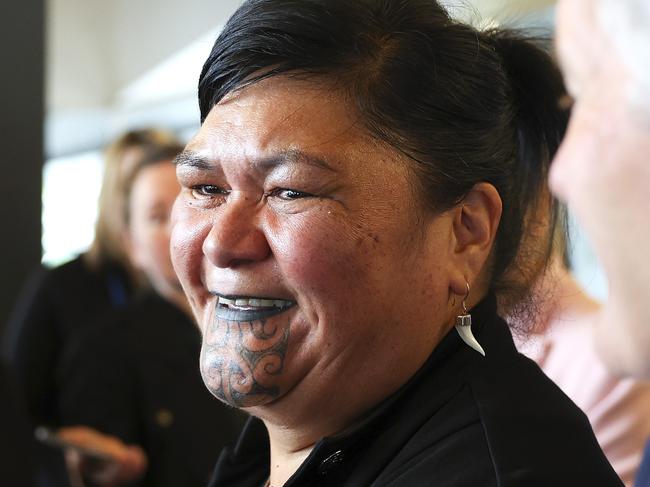
Ms Mahuta said that hosting the 2021 Asia Pacific Economic Cooperation presented a chance for New Zealand to bring the parties together.
“Do I believe there might an opportunity for New Zealand to create a different environment and have a conversation? Yes, I do,” she said.
“Hosting APEC might well be the opportunity … but both parties will have to be willing to come together and concede in some areas where they are currently not seeing eye-to-eye.”
China’s latest move was to slap a ban on Australia’s $14bn coal industry.
Relations have soured this year, largely over Australia leading a global push to have China investigated over the spread of the coronavirus.
Fragile relations went from bad to worse when a China foreign ministry spokesman posted a fake image of an Australian soldier holding a bloodied knife to the throat of an Afghan child. New Zealand raised concerns with China about using the image.
“I don’t think Twitter diplomacy can be achieved when disinformation is promoted through social media,” Ms Mahuta said. “We need to go back to tried and tested diplomacy which is dialogue and ensuring doors are open so people can work through some challenging issues.”
Minister Mahuta joined counterparts from the Five Eyes intelligence partners – Australia, the UK, Canada and the US – in condemning China for disqualifying legislators in Hong Kong. This angered China, which reacted by warning the western alliance that it could get “poked in the eye”, The Guardian said.
Prime Minister Jacinda Ardern’s government has criticised China’s lending to small Pacific Islands, raised concerns about Muslim Uighurs in China’s Xinjiang region and backed Taiwan’s participation at the World Health Organisation despite a warning from Beijing.
Little known outside New Zealand, Ms Mahuta was a surprise pick as Ardern’s foreign minister in the country’s most diverse cabinet yet. Her moko kauae, or facial tattoo, has attracted much attention.
“Curiosity is the operative word,” she said when asked how people have reacted.
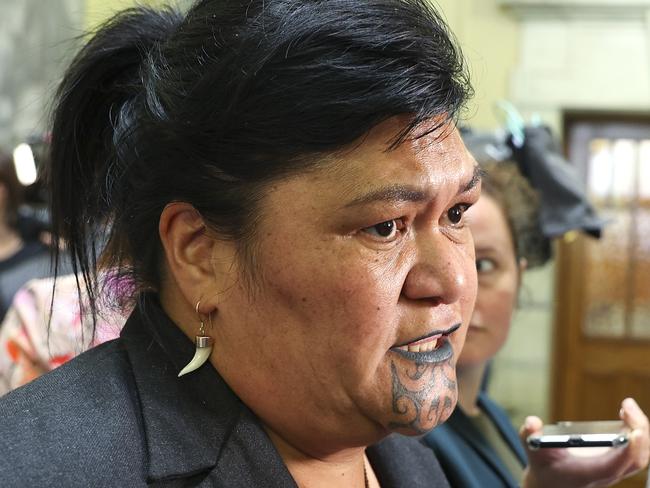
University of Waikato law professor Alexander Gillespie said New Zealand was in a good position to try to cool things down between Canberra and Beijing.
“There is no guarantee that getting the two sides to sit down and talk calmly will work,” he said. “It would be a very, very, long road ahead – but it would be heading in a different direction to where we are currently going.”
The first Māori woman to hold the post, Ms Mahuta highlighted the fact that New Zealand’s whakapapa, or kinship connections, go back to the Asia region. “That enables us to navigate our relations with China perhaps a little differently than other countries,” she said.
AUSTRALIA CALLS ON CHINA TO EXPLAIN $14B COAL BAN
Australia is seeking official “clarification” from the Chinese Government following reports Beijing had singled out coal exports in its escalating trade dispute Prime Minister Scott Morrison said.
“Until we are in a position to have that clarified, then we can only treat these as media
speculation in the Chinese state-owned media,” he said.
“That said, what is important to note here is that if that were the case, if that were the case, then that would obviously be in breach of WTO rules.
“It would be obviously in breach of our on free trade agreement and so we would hope that is certainly not the case.”
Mr Morrison said China was not Australia’s biggest market for thermal coal, with Japan actually buying more of the high quality product.
“Our coal mines and our coal exports have a diverse customer base,” he said.
“But, obviously we take these issues very seriously.
“I would hope that we could get to the point of having some mature discussions about (this),” he said.
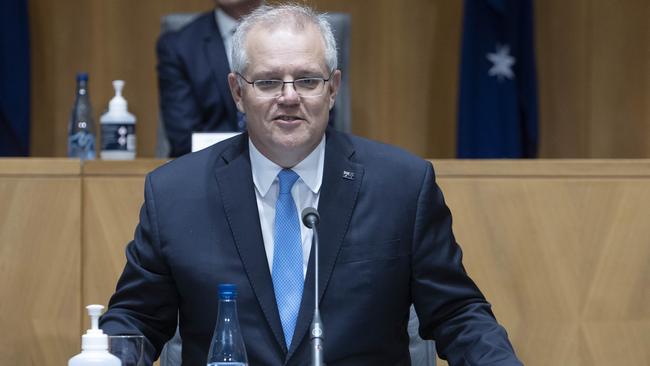
“The Australian government is seeking to discuss a number of other trade issues that are currently afoot.”
Furious at moves to block Australian coal imports, Trade Minister Simon Birmingham has demanded China speak “government to government” and stop the threats through state-owned media.
Mr Birmingham has condemned reports Beijing has black-listed Australian coal in the worsening trade dispute, where previous targets include barley, beef, wine, cotton and copper.
“This accumulative series of actions has prompted us to call it out and to raise our concerns, economically here in Australia, directly of course with China through all of our
diplomatic channels available to us and ultimately to already do so at the World Trade (Organisation),” he said.
“These actions (against coal), if true, would potentially constitute discriminatory action against Australian producers (and) potentially constitute a breach of the type of undertakings that China has made to Australia, to the world in relation to their trade practices.”
Responding to reports China has directed importers not to buy Australian coal, Mr Birmingham said while he tends “not to believe” everything he reads in state-owned media, there was a “patter of disruption”.
“It has been well (documented) that a number of vessels have been delayed in terms of offloading Australian coal into China for a considerable period of time,” he said.
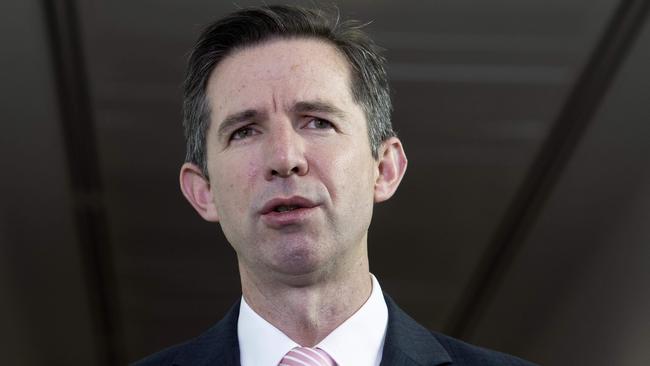
“That product has, in most cases, already been purchased by Chinese companies and Australian businesses have ordinarily been paid for it the it is loaded on to those
vessels in Australia.
“Nonetheless less, those delays have a disruptive impact, in terms of future fleets and so … these reports would only heighten that concern.”
Mr Birmingham said without Australia’s high quality coal, China would have to use poorer alternatives, which would put it at risk of failing to meet its own emissions reductions commitments.
“Australian coal is around 1.5 times more efficient in terms of energy production than most other competitor nations, including Chinese domestic coal,” he said.
“That means that to get the same level of energy generation, China will end up having to use more coal from other sources and generate more emissions from those sources, which will do anything but help China in terms of meet some of the commitments it has made to the world around missions reduction as well.”
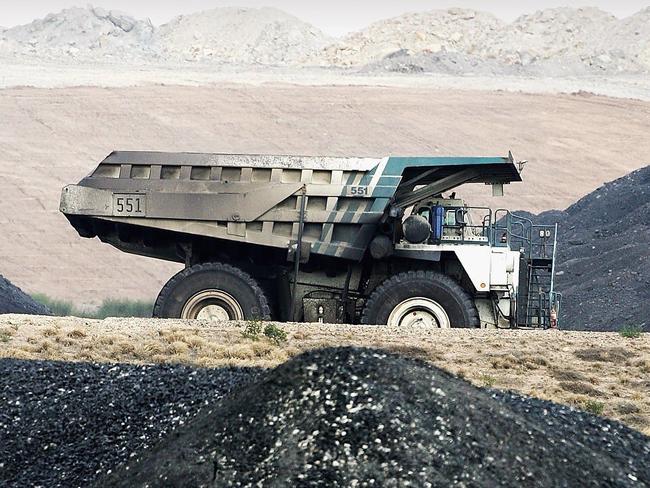
Mr Birmingham said the government had long been strengthening trade ties with India, the Republic of Korea and Vietnam as alternate markets to China to give exporters “as many choices available to them as possible” to sell to.
Chinese state-owned media reported on Sunday that Australia had been “shut-out” of a new coal policy that gave power plants approval to import coal without customs restrictions from every other country.
The Global Times reported the new policy was designed to stabilise coal prices. The government mouthpiece also published an opinion piece blasting Australia as an “anti-China pioneer” with a “sense of anxiety” about being invaded.
“Due to its high degree of dependency on the US for security and the growing concern about the rise of China in the region, Canberra is very worried that Washington’s strategic contraction will aggravate risks of it being abandoned by Uncle Sam,” the op-ed read.
More than 50 vessels containing hundreds of millions of dollars worth of Australian coal were stuck anchored off Chinese ports last month as trade tensions continued between the two partners.
This followed Chinese officials issuing verbal warnings in October to companies to halt buying thermal coal from Australia.
It comes after China on Thursday last week said it had imposed fresh import duties on Australian wine as it accused Canberra of giving firms subsidies, in the latest salvo in a bitter stand-off following last month’s swingeing anti-dumping tariffs.
The move comes as relations between both countries continue to sour after Australia called earlier this year for an inquiry into the origins of the COVID-19 outbreak, which emerged in China.
The anti-subsidy tariffs of 6.3-6.4 per cent kicked in Friday and comes on top of November’s anti-dumping levies of 107-212 per cent.
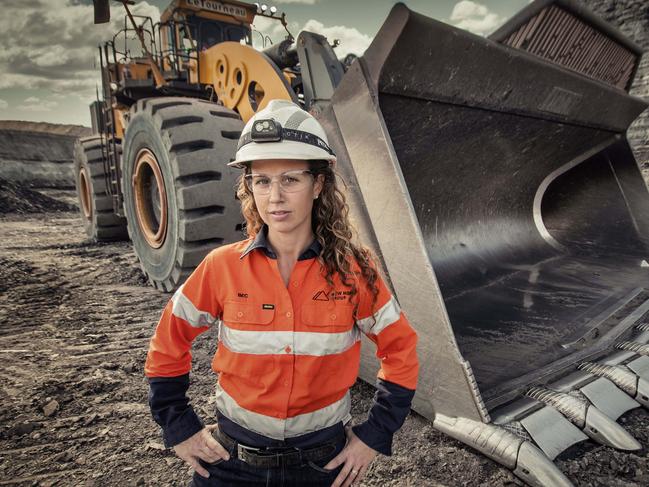
China’s commerce ministry said the move followed a probe announced in late August.
“The investigation authority has preliminarily determined that there are subsidies for imported wines originating in Australia, and (China’s) domestic wine industry has suffered substantive damage,” said the ministry.
The ministry has complained that Australian winemakers benefit from government subsidies that give them an advantage over Chinese firms.
But Australia’s trade minister called last month’s measures “grossly unfair, unwarranted, unjustified”.
Australian winemakers have warned that last month’s tariffs would likely mean the lucrative Chinese market would dry up.
Treasury Wine Estates — which produces the popular high-end Penfolds brand — said it would look to other “key luxury growth markets” and cut costs as sales accounting for 30 per cent of earnings fall away.
Australia-China relations have become grim this year, with Beijing producing a laundry list of complaints about Australian policies, including its ban on Huawei’s participation in 5G in the country.
Beijing also suspended beef imports from four Australian slaughterhouses in May and hit barley shipments from the country with tariffs.
China frequently flexes its economic muscle in diplomatic disputes, with Australia being one of several countries recently to face its wrath in the form of trade restrictions.
Beijing last year suspended imports of Canadian canola, beef and pork, citing pests and health concerns, as relations soured following the arrest of Huawei’s chief financial officer by Canadian authorities in 2018.
More Coverage
Originally published as ‘Bad relations’ with Australia have led to power shortages in China, leaving millions shivering in their homes




